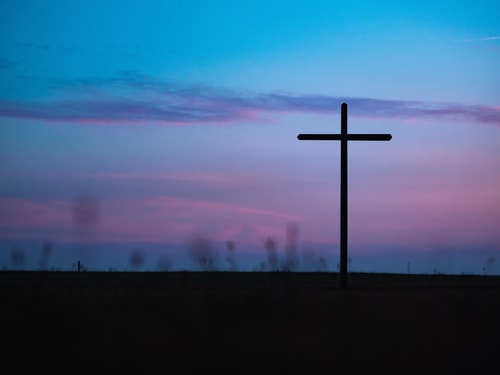When I’m reading a really good book, I become engrossed in it. It’s hard to pull me away from the book. When you do, often I’m still thinking about the plot, rather than focusing on the person or task in front of me.
When I was younger, I used to be so desperate to know what would happen, that I’d let my eyes either skip to the bottom of the page, or scan over the next few pages. Yet, this significantly lessened the experience of the book. The author didn’t intend for me to know the end of the chapter halfway through it. These days, I’m more disciplined: however much I want to know the end, I will resist jumping ahead, because when I do, resist that is, I notice elements of the story that I would have missed.
The small group I’m part of at my church has been working through Mark’s gospel. As a group, we’ve tried to go through the gospel trying our best to forget the ending. We’ve tried to enter into the experience of the people who encountered Jesus, people who didn’t know the ending. This practice, by no means original, has proved insightful. It becomes particularly pertinent during Holy Week.
I’ve been part of a variety of churches throughout my life as a Christian; all of them have had their own way of doing things and emphasised different elements of the Christian faith. A theme common to all of them, however, has been a strong focus on Jesus’ resurrection (thankfully!) and exploring how we can live, by God’s Spirit, in the power of the resurrection today. This focus on our new life in Christ has been, and will continue to be, a source of immense strength to me, particularly given my tendency for a few low spells each day.
"The hope of Easter Sunday is brighter when we experience the depths and darkness of Good Friday."
However, as I’ve reflected on Holy Week, it has become apparent to me that, of all the weeks in the year, here is one where I need to not skip ahead to the end. If I can change lenses for the week, then it opens up the different contours of the week, enabling me to begin to imagine the immense highs and lows that Jesus and His followers went through: the joy of the triumphal entry, finally Israel will be restored, and their true King enthroned; the adrenaline of Jesus clearing the temple, followed by the shock when He predicts its destruction and subsequent rebuilding.
I think the sad events of the fire at Notre-Dame de Paris offer a helpful insight into how shocking this prediction would have been. We’ve witnessed the sadness and horror that comes at seeing a national emblem being ravaged by fire before our eyes. The temple was at the heart of everything significant for the nation of Israel. I wonder if Jesus’ followers started to question what they’d got themselves into when they heard Jesus predicting the temple’s destruction.
That brings us to today, Maundy Thursday. The disciples shared a Passover meal with Jesus. A meal they would have celebrated every year of their lives. A meal so familiar to them, remembering how God delivered the Israelites from Egypt into Canaan, the promised land. Everything would have been following the normal traditions, until Jesus comes to bless the elements and departs from the script. He refers to His body, His blood, and makes an oath to establish a new covenant.
As theologian Timothy Keller writes: “With these simple gestures of holding up the bread and the wine, with the simple words ‘this is my body… this is my blood,’ Jesus is saying that all the earlier deliverances, the earlier sacrifices, the lambs at Passover, were pointing to Himself.”
As the disciples followed Jesus to Gethsemane, I wonder what were they thinking? Had they understood the significance of Jesus’ words at the Passover meal? Jesus had predicted His death to the disciples, yet their reactions and responses up to this point suggest they weren’t sure what was about to happen.
As we continue together through to the climax of Holy Week, let’s try to not skip ahead. As best we can, let’s try to find space to reflect upon and enter the dramatic and world-transforming events that were about to unfold. Because the hope of Easter Sunday is brighter when we experience the depths and darkness of Good Friday.
Photo by Aaron Burden on Unsplash.



